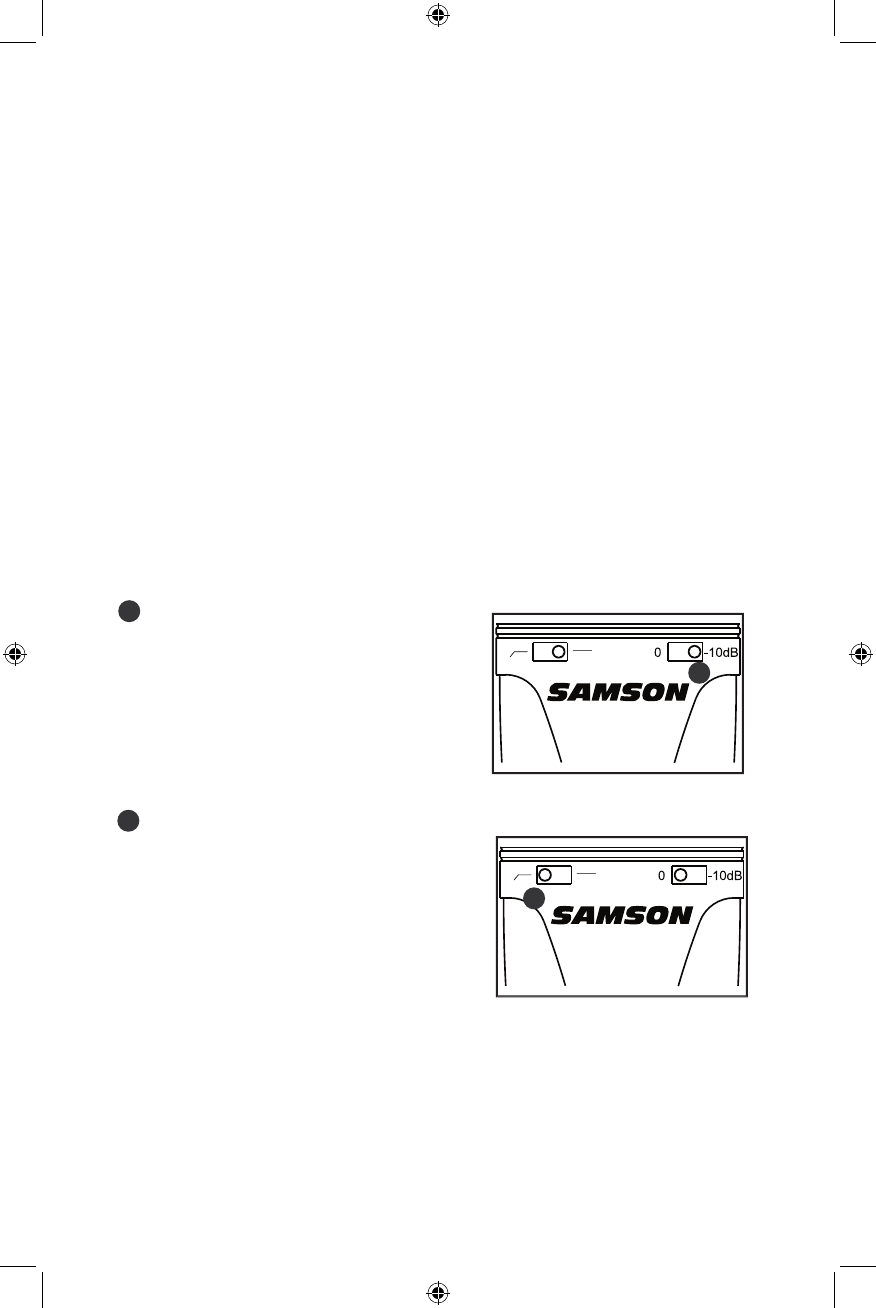
Powering the CL8
The CL8 is a condenser microphone and therefore needs to be operated by connecting a phan-
tom power supply. Phantom power is standard on most quality mixers, outboard mic-pres and
hard disk recorders. If necessary, an external phantom supply (like the S phantom by Samson
Audio) can also be used. The CL8 receives the phantom power directly from a mic cable when
connected to a mixer or other microphone input that includes a phantom supply. The power is
actually sent OUT of the microphone INPUT, riding silently along with the audio signal. (Fairly
mysterious, eh?) Most mixers have a switch to engage the phantom power so be sure to check
that the phantom power is on.
Setting Up the Signal Level
When connecting the CL8 to a mixer or recorder input, be sure that the input is of microphone
level. Also, be sure that the phantom power is engaged as explained the previous section
“Powering the CL8”. Most mixers and recorders of reasonable quality will offer a microphone
input with mic trim (usually called Trim or Gain) control. The purpose of the mic trim control is
to optimize the amount of good signal to any noise associated with the mixers electronics. A
good mic pre with trim also will have a PEAK or CLIP LED. To set a good level on the mic, set the
CL8 up in front of the desired sound source and slowly raise the mic trim control until you see
the PEAK LED light up. Then, turn the mix trim control down until the LED does not light any
more. On most mixers, the ideal setting is that the trim control is turned up as much as possible
without lighting the PEAK LED. If you try turning the Gain control all the way down, and the
PEAK light is still lighting, try using the CL8’s PAD as explained in the following section.
Using the PAD Switch
The CL8 includes a PAD switch, which you can use to
lower the input sensitivity of the microphone. When
the PAD switch is set at the 0dB position the PAD is
bypassed and there is no effect on the signal. When
the PAD switch is set to the –10dB position, the micro-
phone’s input sensitivity will be lowered by 10dB. You
can use the PAD when you are miking loud sound
sources with a high SPL (Sound Pressure Level).
Using the Hi-Pass Filter
The CL8 offers a user selectable hi-pass, or low-cut filter,
which you can use to eliminate any unwanted low fre-
quency reproduction. When the Hi-pass Filter is is set to
the “flat” (indicated by the straight line) position, there
is no effect on the signal. When the Hi-pass switch is
set to the “roll-off” position (indicated with the angled
line), a 12dB per octave low-cut at 100Hz is applied to
the signal. This can be extremely useful for removing
low frequency stage rumble, wind noise during outdoor use, and filtering out lows from drums
when used as overhead cymbal microphone on a drum kit.
Polar Patterns
The most important characteristic of any microphone is its directionality or “pickup pattern”.
The CL8’s versatile dual capsule design is capable of producing three useful pick up patterns;
Cardioid, Omni, and Figure 8. It is easy for you to select the pickup pattern using the CL8’s
pattern selection switch located on the rear of the microphone. When choosing a pattern, you
should be aware of the phenomenon known as the “proximity effect”.
Operating the CL8
4
1
2
2
1
CL8_ownman.indd 4 10/12/04 8:26:15 PM










